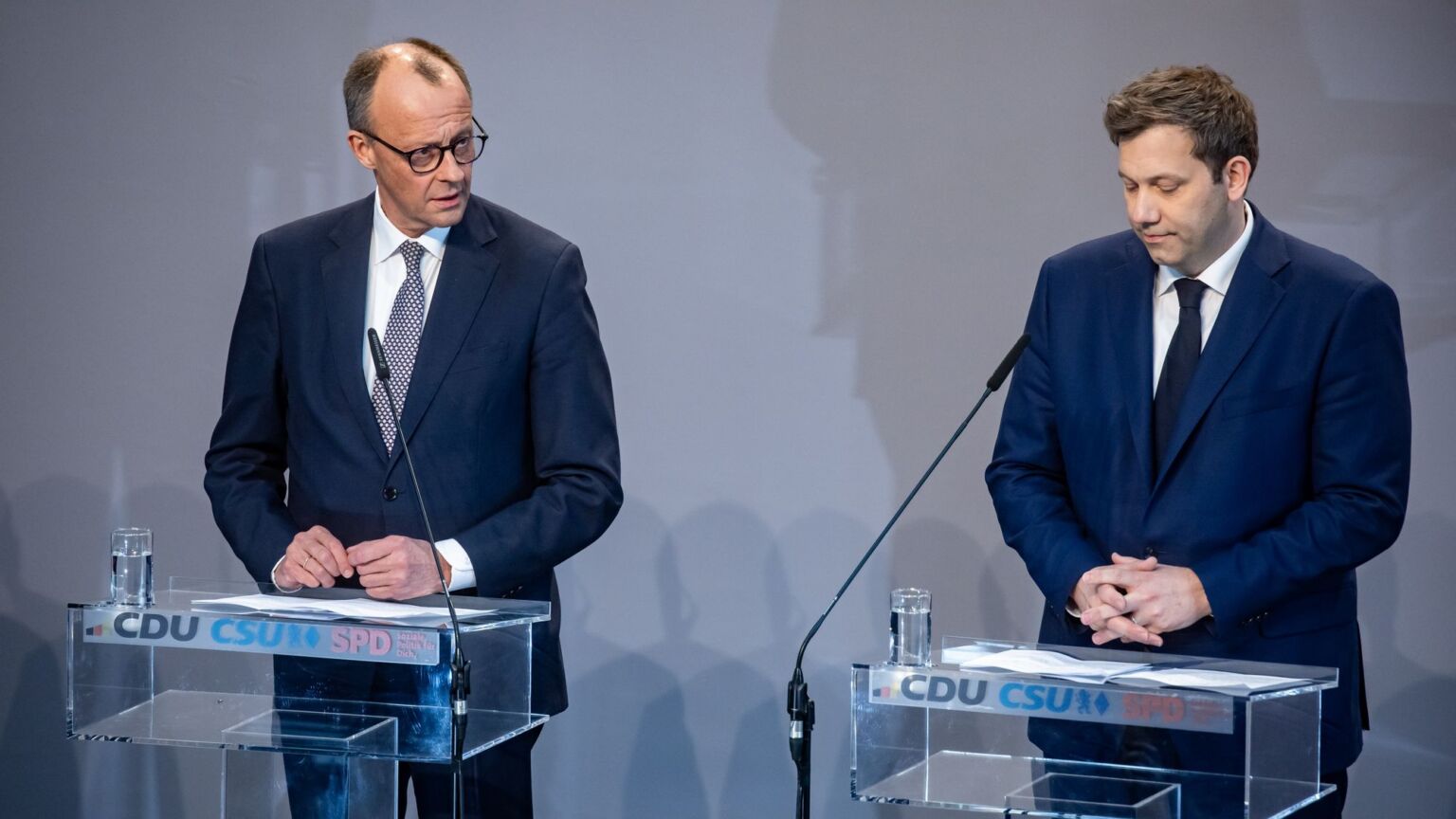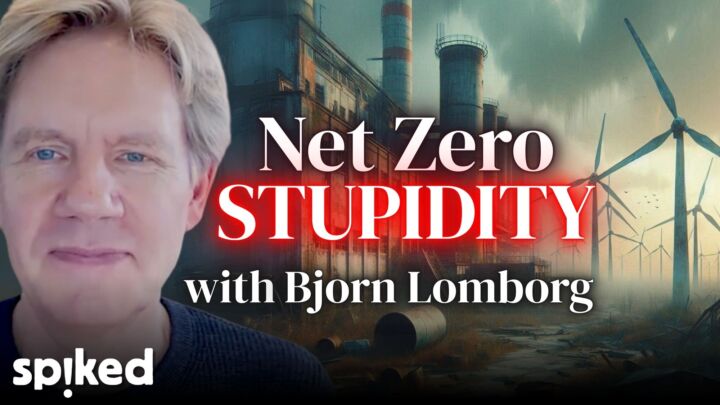Why the AfD is topping the polls in Germany
Incoming chancellor Friedrich Merz has already betrayed his voters.

Want to read spiked ad-free? Become a spiked supporter.
It is unheard of in German politics for a government to lose support before it has even entered office. Yet this is precisely what has happened to the incoming coalition between the Christian Democratic Union (CDU) and the Social Democratic Party (SPD) under Friedrich Merz, Germany’s likely new chancellor.
When the two parties unveiled their 146-page coalition agreement last week, the polls delivered a damning verdict. Support for the CDU, which won February’s General Election with a meagre 28.5 per cent, plummeted to 24 per cent. Even more alarming for the incoming government, many polls now place the right-populist Alternative for Germany (AfD) in the lead at 25 per cent. Hermann Binkert, head of the INSA polling institute, describes this as a ‘loss of approval like never before in the period between a federal election and the formation of a new government’.
The reason for the CDU’s tanking popularity isn’t difficult to fathom. Nearly two-thirds of Germans don’t believe this government will deliver meaningful change. Yet change was precisely what voters demanded when they decisively rejected all the parties in the outgoing government in February, especially the SPD. It’s why Merz tried to position himself as the candidate for change, promising radical reforms to migration and the economy.
The collapse in support for Merz’s CDU was predictable from the moment he announced his intention to form a coalition with the SPD. How could he possibly achieve change alongside a party responsible for so many of Germany’s worst failures in recent years? The SPD, which led the despised last government, was the election’s biggest loser. It won just 16 per cent of the vote – its worst result since 1887. Yet now Merz has brought the very people voters wanted to get rid of back into power. The SPD will now control seven ministries, including finance, labour and defence.
The coalition agreement confirms voters’ worst fear – namely, that meaningful change is off the table, despite the enormous challenges Germany faces. For one thing, the economically ruinous pursuit of Net Zero will continue unabated. The CDU’s pre-election promise to review the suicidal phase-out of nuclear energy has now been abandoned, and the dismantling of Germany’s last nuclear power stations will go ahead after all. While much has been made of Merz’s post-election announcement of billions of euros of debt-funded investment in defence and infrastructure, €100 billion of this will be earmarked for climate-change initiatives.
Similarly, Merz’s promised tightening of immigration rules now amounts to little. Border controls that are already in place will be maintained, but these are woefully inadequate. Migrants entering without valid papers are to be deported, but only in coordination with Germany’s EU neighbours – another way of saying it won’t happen at all. This has dashed the hopes of the vast majority of Germans who expect the state to get immigration back under control.
The coalition agreement is the ‘most spectacular betrayal of centre-right voters’, according to one commentator. The CDU will happily break any promise so long as it keeps the AfD out of power. Indeed, Merz told the press last month that he felt ‘virtually obliged’ to partner with the SPD, as this was the only route to a ‘parliamentary majority’ that involves the ‘democratic centre’. Both the CDU and SPD, he added, understand their ‘European and international responsibilities’.
There are, of course, legitimate reasons for Merz to avoid a coalition with the AfD, including the party’s failure to purge its extremist elements. Still, the coalition agreement with the SPD represents nothing less than the thwarting of voters’ wishes. It has, in effect, rewarded the election’s biggest losers and carried over their most hated policies. What’s more, Merz’s outrageous manoeuvre of having his spending plans authorised by the outgoing parliament, because he knew the newly elected one would vote them down, further demonstrates his contempt for democracy.
The German establishment’s mission to crush populist dissent has become all-consuming. To this end, the coalition agreement includes numerous censorship provisions. It will criminalise the dissemination of ‘fake facts’ and tighten already repressive laws against ‘incitement’. Free speech will continue to be sacrificed.
Without even realising it, the German elites are doing everything possible to strengthen their populist opponents. By taking change firmly off the table, Merz and Co are only hastening their own collapse.
Sabine Beppler-Spahl is spiked’s Germany correspondent.










Comments
Want to join the conversation?
Only spiked supporters and patrons, who donate regularly to us, can comment on our articles.